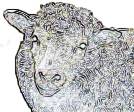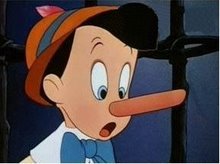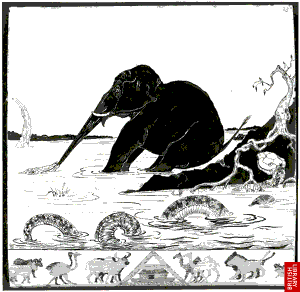
Monkeys smack their lips during friendly face-to-face encounters, and now a new study says that this seemingly simple behavior may be tied to human speech.
Previously experts thought the evolutionary origins of human speech came from primate vocalizations, such as chimpanzee hoots or monkey coos. But now scientists suspect that rapid, controlled movements of the tongue, lips and jaw were more important to the emergence of speech.
For the study,W. Tecumseh Fitch and colleagues used x-ray movies to investigate lip-smacking gestures in monkeys. Mother monkeys do this a lot with their infants, like humans going goo-goo-goo in a baby's face while playing. Fitch,and his team determined that lip-smacking is a complex behavior that requires rapid, coordinated movements of the lips, jaw, tongue and the hyoid bone.The smacks occur at a rate of about 5 cycles per second - the exact same rate as for average speed human speech. Put vocalizations and these lip smacks together and voila- the basis of speech. As our ancestors began to live closer together and to cooperate, perhaps the conditions were just right to promote this skill. It's a mystery, though, as to why monkeys never got our gift of gab. The "singing" component of speech, which requires voluntary control over the larynx, remains an evolutionary mystery too.
StoryTeller: W Tecumseh Fitch, Department of Cognitive Biology University of Vienna
Source: Discovery News Lip Smacks of Monkeys Prelude to Speech?
Story Research : The wrong way to understand the origin of human language







.jpg)























No comments:
Post a Comment